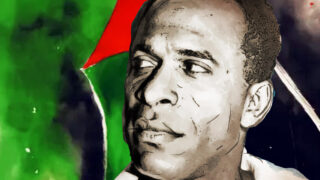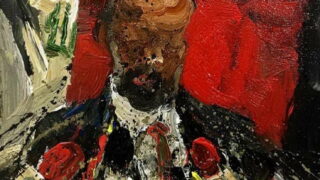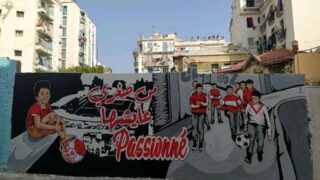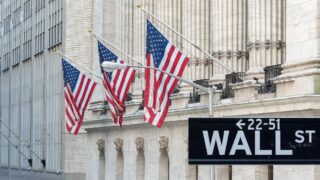Algeria has been without a president for over two months now, but this has not affected the governance, which has had no real influence for a while. President Abdelaziz Bouteflika spent 70 days in a Parisian hospital before returning to his country at the onset of Ramadan in a wheelchair, with obvious signs of physical frailty. His return did not stir any public interest, though. Algeria continued on with life, in the wake of the numerous corruption scandals and rumors about the succession of a man whose presence in political power was as good as his absence. In fact, power is effectively held by covert men who are not in the public eye.
The estrangement between the ruling security and military elites and the public has been used up in Algeria. As an example of this, July 5 did not witness any official celebration for the 51st anniversary of the country’s independence in 1962. Following orders from authorities, musical bands played in the squares of the city that were decorated with photos of the absent president, as if that date had lost its meaning completely, in a country known for being passionate about its history.
Warehouse for imported goods
The authorities’ organization of a commemoration ceremony during an exclusive evening occurred as if to distract a generation of unemployed youth, who have no real horizons for their ambition. The Algerian economy is not creating any jobs. Instead, it is only living on the intense pumping of oil revenues, just like a sick patient receiving serum. Despite astronomical general expenditures, the economy hardly exceeds an annual growth of about 2%. Algeria is unable to provide essential public services. It has a ridiculous economy embodied by a warehouse for imported goods that have constantly been increasing for years and are dangerously heading toward becoming consumer goods, amid suspicions surrounding the fate of oil, and especially gas exports.
According to the National Economic and Social Council (CNES), the general surplus of the balance of payments reached $12 billion in 2012, after having amounted to $19.9 billion in 2011. The 2012 surplus was achieved due to suitable circumstances that provided significant export revenues in the oil market, amid negative results for most indicators of the balance of payments, according to the council. Moreover, the balance of services recorded a deficit that exceeded $4 billion in 2012, and was influenced by a rise in the transfers of Sonatrach Corporation partners (the National Company for the Exploration, Production, Transportation, Processing and Sale of Hydrocarbons), in addition to the reduction of direct foreign investment to $1.7 billion ($1.5 billion according to the United Nations Conference on Trade and Development [CNUCED]). The general financial result was not spared from this decline, thus recording a deficit last year.
Decline of oil exports and revenues
The latest data issued by the commercial bank and announced by the Algerian Customs Department during the first five months of 2013, confirm this consumer tendency, which pushed the governor of the Central Bank of Algeria to sound the alarm regarding the delicacy of the balance of payments. He said, “The Algerian economy is facing a foreign shock similar to that of 2009, and this has been intensified by the huge decline in the balance of payments due to the drop of the oil revenues.”
According to Maghreb Emergent website, the decline in the prices of crude oil and in the amount of exports has led to the decrease of Algerian oil revenues by more than $3 billion during the first quarter of 2013.
Simply, the surplus in the balance of payments, which still exceeded $4 billion during the first quarter of 2012, has run out. According to the governor of the Central Bank, “This situation is unbearable and constitutes a serious threat to foreign accounts.” This decline was confirmed at the end of May 2013, when a drop a bit above 8% in exports was recorded, while there was a 17.5% increase in imports. The commercial surplus that reached $12 billion at the end of 2012, was reduced to half and equaled almost $6 billion. As for exports, the main decline was in the field of oil resources with 9.8%, while goods designed for sustainable consumption, especially cars, increased the percentage of imports.
Unbalanced commercial exchange
The control of customs-related statistics shows that the probable disappearance of the surplus in the balance of payments, at least during the first half of the current year, is not a mere hypothesis. The inverse development of the Algerian commercial exchange is responsible for the decline of over $1 billion in the cash reserves, according to the Central Bank, between the end of 2012 and March 2013. The current general level of reserves is very reassuring and amounts to $208 billion, according to the CNES.
Observers agree that the depletion of these reserves is not an accidental matter but indicates the presence of a worrying trend. No matter the size of the Algerian cash reserves and their importance, they will not last forever. It seems that 2012 rang in the vicious circle of depletion of cash reserves, which could result in the end in their complete disappearance within a decade or a bit more. A report issued at the onset of 2013, and prepared by Algerian experts, clarified that the cash reserves of the country “will start declining at the beginning of 2016, and they are at risk of running out by 2024. Consequently, we would have to borrow money as of that date to fund our commercial deficit.” This scenario seems bullish compared to the results of the first five months of 2013.
A government lacking vision and imagination
A government that does not have an economic policy tries to keep up with the current developments by adopting more stringent control over the financial surpluses that are in danger of vanishing as quickly as they were accumulated. On May 9, the minister of finance openly discussed the hypothesis that indicates a possible decline of oil revenues. This scenario — according to the government, which lacks imagination — can be resolved “through added caution at the level of fiscal policy management.” In any case, the first victim of this return to stringency was the abandonment of the project of an increase of touristic tariffs until further notice. It is noteworthy that this project is a complete act of demagoguery and has cost around $2 billion per year.
The situation of Algeria’s foreign trade reflects the governance crisis of a country with steadily declining import of equipment and increasing import of cars. The main adviser to the governor of the Central Bank of Algeria recently revealed a decline of over 22% of industrial equipment imports in the first three months of 2013. On the other hand, the import of cars is booming, to an extent that this year’s bill could exceed $7 billion, equivalent to the price of around 600,000 imported cars.
This astronomical number can be compared to a significant indicator of the country’s investment attractiveness and dynamism, which is the indicator of direct foreign investments for 2012. These investments did not exceed $1.5 billion, as mentioned above.
The absence of a political policy and the legendary level of paralysis in the government raise concerns among the youth, who cannot find any jobs or houses, in a country with successive corruption scandals. In Algeria, the people behind this corruption are not appearing before courts, despite being known. The bad health situation of the president, severe as it is, remains simple compared to the illness of the defective Algerian economy — one with compulsively deteriorating foundations of production and productivity due to a political administration torn between illegitimacy and incompetence.
Translated by Al-Monitor




